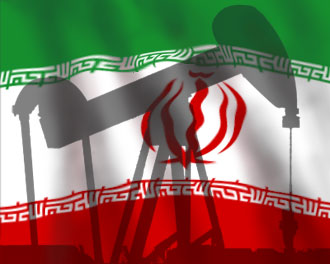Iran Snap Analysis: Are the Oil Sanctions Tightening on Tehran?
 The New York Times summarises the US effort to tighten sanctions on Iran, with Secretary of Treasury Tim Geithner moving through Asia:
The New York Times summarises the US effort to tighten sanctions on Iran, with Secretary of Treasury Tim Geithner moving through Asia:
Pressure on Iran mounted on Thursday, with the United States saying it was determined to isolate the country’s central bank, and three of Iran’s largest oil customers — Japan, South Korea and China — getting assurances that Saudi Arabia and other Persian Gulf producers would help make up any gap in supplies if they curtailed oil purchases from Iran.
With the caveat that the Times is relying on a line fed to it by American officials, there are three points which are striking about the report:
1. The months-long strategy to arrange alternative supplies for a reduction or even cut-off of Iranian oil imports is paying off, at least in American eyes. We had seen evidence of this in the last week, with the Japanese Foreign Minister visiting his UAE counterpart to announce an increase in oil from the Emirates. And, of course, this is not only an effort for Asia: a European Union suspension of Iran's oil (expected next week in declaration, if not in practice until late spring) also rests on the alternative sources.
2. We already knew about the US effort to persuade Japan and South Korea through this strategy. What is striking above is the inclusion of China. Officially, Beijing is taking the firm stance that it will not agree to any stiffened sanctions. We have suspected that, behind the scenes, the Chinese might be more accommodating to a reduction of their imports from the Islamic Republic. The Times observes, "This weekend [China's] prime minister, Wen Jiabao, will begin a five-day visit to Saudi Arabia, Qatar and the United Arab Emirates, perhaps to explore the prospect of increased energy imports."
Watch closely to see if China, which has halved its oil from Iran for January and February, continues this into the spring.
3. The US is now confident enough to declare that a cut-off of links with the Central Bank of Iran, which handles about half of Tehran's oil transactions, is not just desirable but will occur.
That is a significant shift from the autumn, when the European Union rebuffed American pleas to break with the Bank (although individual countries such as Britain did so) and when the State Department rejected a public declaration of a break.
It appears that Congress's insistence on a measure --- opposed by the Administration but accepted by President on 31 December --- insisting on punishing foreign entities who deal with the Bank altered the calculations. Now Washington thinks the Bank can be isolated through this strategy of working country-by-country and in practice, rather than in formal statements of a blanket ban.
There are still caveats to the Administration's bullish position, as presented to the Times. The Minister of Energy in Turkey, a major player in the economic game with Iran, publicly defied Washington on Thursday, "Turkey does not feel it is bound by any sanctions taken unilaterally or as a group, other than those imposed by the United Nations....At the moment our imports continue and as of today there is no change in our road map.” However, at the same time, other Turkish officials signalled flexibility in negotiations, saying that Ankara could reduce links if it was allowed an American waiver to continue some trade.
The Times also adds this caution:
Oil analysts say these exporters, all allies of the United States in confronting Iran, would be able to replace up to two-thirds of Iran’s 2.2 million barrels a day of oil exports that anchor the Iranian economy with annual revenue of roughly $75 billion a year. But the analysts caution that these countries could sustain the additional output only for a limited amount of time through increased production and the tapping of stored reserves estimated at 30 million barrels. They also warn that eventually oil prices would rise, threatening the shaky global economy.
The gulf states “could replace the Iranian oil for about a month, and then you would have to look to the strategic reserves from the West, which could represent another month,” said Chakib Khelil, a former Algerian energy minister who also served as president of OPEC. “Then you could have undersupply, and oil prices could get jacked up.”
However, even if we are looking at a reduction rather than a cut-off of Iran's oil exports and thus its revenues, this would be a significant addition to the economic problems that Tehran is facing. And energy is only a part of the equation --- the financial restrictions apply to all of Iran's trade. The optimistic "senior Administration official" asserts, “[This has] created uncertainty for people who want to deal with Iran, so they are looking to diversify and choose other sources for their transactions.”
 Central Bank of Iran,
Central Bank of Iran,  Chakib Khelil,
Chakib Khelil,  China,
China,  Japan,
Japan,  Oil,
Oil,  South Korea,
South Korea,  Tim Geithner,
Tim Geithner,  Turkey,
Turkey,  Wen Jiabao
Wen Jiabao 
